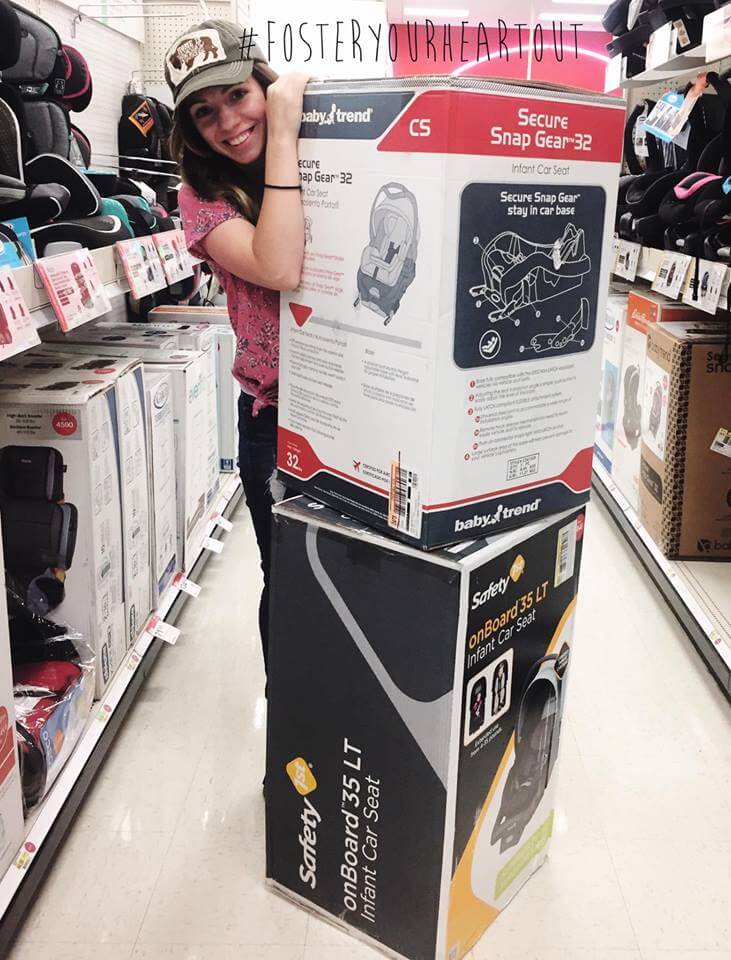More than 400,000 children in the U.S. are unwilling members of the foster care system.
It is said that if just ONE family in every single church across America agreed to take in ONE foster child, there would be nobody left in the system.
Think about that for a minute. How many families do you have at your church? How many churches do you have in your town? It would take just ONE of those families from each of those churches to close what seems like an impossible revolving door.
In the grand scheme of things, that sounds like one of the more simple tasks the church could take on. But we’re not.
Sarah and her husband learned of the overwhelming foster care needs while researching adoption options. “Once you see that need you can’t unsee it,” she told Scary Mommy. “You see the faces and hear the voices of children in your town needing safety and stability and love. And it starts consuming your thoughts.”

So Sarah did something about it. Her family of four became certified and took in their first foster child — a teenage boy she calls “C.”
Two weeks ago, C was scheduled for his first court hearing since being placed with Sarah’s family. She shared her experience in a post on Facebook, which quickly went viral:
“Court today. I had to keep my hand on something because it was shaking.”

“They all spoke like it was a legal procedure and nothing more. No compassion. ‘Does anyone want the child? Are you sure? Nobody? Ok, we will be back in a few weeks and finish paperwork.’”
For Sarah, C is a part of her family’s hearts, their home and their family as a whole. Her heart broke as her foster son sat beside her.
“Meanwhile said ‘child’ is a boy I care very much about. A boy sitting next to me hearing every word. A boy who is trying to wipe away the hot tear rolling down his cheek.”
Sarah continues her post with the honest and often ugly parts of foster care — and it’s not what you might expect.
For her, the ugly parts aren’t housing a child, loving them like your own and then potentially having to say goodbye. The ugly parts are things like this court hearing, and the ways we as a society are failing a massive chunk of our population:
“We ask them to act like respectful members of society. But we drop them off at strangers homes with everything they own in trash bags and then have them sit through a court hearing that would shake any adult. They have to hear nobody wants them or the few people that might are not fit. Then we drop them off at school to handle these emotions. And shake our heads when they are expelled again. We tell them to stay out of trouble and label them as bad kids for outbursts of anger and frustration.”
As if her words didn’t shake us all to our core, she ended the post with this zinger:
“Why are our juvenile jails full? Because our custody court rooms are empty.”
Sarah left the court that day and took C home. He was placed with a new family just a few days later.
The mother of two said family and friends had warned her early on in the foster care journey “not to get attached.” But Sarah has learned just as quickly how important it is to do just the opposite.
“These kids need attachment. If they had healthy attachment, they wouldn’t be in foster care to begin with.”
She continues:
“I don’t know how long I’m going to have with them, so I’m not going to hold back my love for a single second.”
We as the church have a responsibility to love on and care for the lost — that includes those in foster care. You don’t have to become a foster parent to make a difference in a child’s life. Sarah says the best way to help is by donating your time or supplies to families of foster children:
“Drop off dinner, bring over a case of granola bars, drop off a case of toilet paper, baby wipes and paper towels because you know a mama never has too much of any of that.”
As for those select few who are holding back from taking their next step in fostering children, Sarah breaks it down real simple:
“These kids need you. They need your small, messy house. They need your busy life and your fruit snacks. They need to hear your terrible singing voice in the car. They need to see you right where you are.”
Sarah and her family are currently preparing for their next set of foster children — just a few more souls who desperately need to be loved on.


